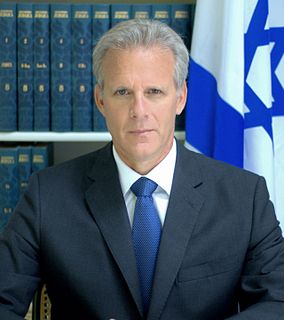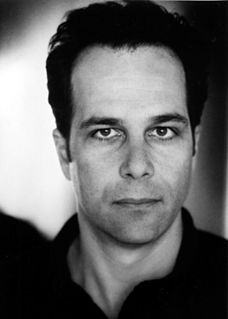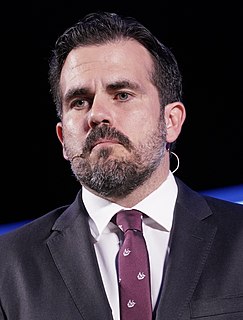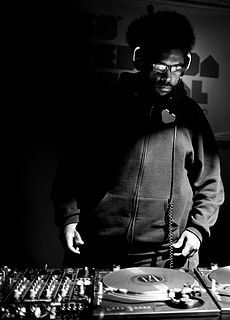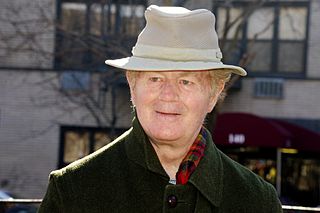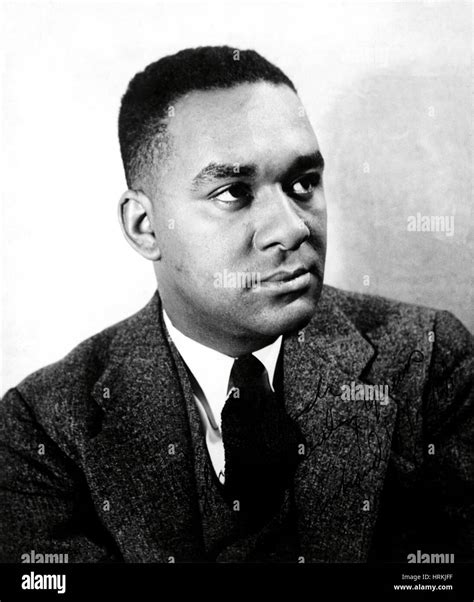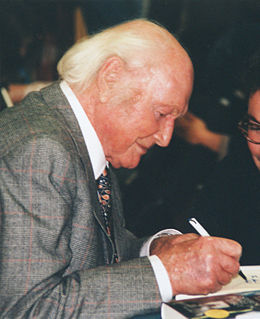Top 286 Colonial Quotes & Sayings - Page 5
Explore popular Colonial quotes.
Last updated on December 22, 2024.
After all, in both languages we were dealing in large measure not with English and French, but with Scots and Irish, Bretons and Normans ... There could be no more eloquent illustration of the colonial mind-set than a bunch of Celts and Vikings in a distant northern territory insulting each other as les Anglais and the French as if they were the descendants of the people who had subjected and ruined them.
America does not hold to the colonial tradition. America came, liberated Afghanistan from the Taliban and al-Qaida, came to an arrangement with Hamid Karzai, wanted to organize elections as soon as possible and then withdraw. The Bush administration thought that once there is a democracy, everything else will fall into place. If today you speak to the architects of the 2001 Afghanistan Conference in Bonn, they will tell you that instead of being fixated on elections, we should have built a State in Afghanistan with an army and a police force first.
In 1933-34, the Belgians conducted a census in order to issue ‘ethnic’ identity cards, which labelled every Rwandan as either Hutu (85%) of Tutsi (14%) or Twa (1%). The identity cards made it virtually impossible for Hutus to become Tutsis, and permitted the Belgians to perfect the administration of an apartheid system rooted in the myth of Tutsi superiority… Whatever Hutu and Tutsi identity may have stood for in the pre-colonial state no longer mattered; the Belgians had made ‘ethnicity’ the defining feature of Rwandan existence.
It was Buckley, as my father and sister joined the group and listened to Grandma Lynn’s countless toasts, who saw me. He saw me standing under the rustic colonial clock and stared. He was drinking champagne. There were strings coming out from all around me, reaching out, waving in the air. Someone passed him a brownie. He held it in his hand but did not eat. He saw my shape and face, which had not changed-the hair still parted down the middle, the chest still flat and hips undeveloped-and wanted to call out my name. It was only a moment, and then I was gone.
I think the Tata Group's greatest contribution to the growth of the Indian economy and Indian industry probably happened in the pre-independence era. The Group's investments in industries such as steel, textiles, power and hotels were certainly driven by an entrepreneurial spirit, but they were driven even more, I think, by a desire to make India self-sufficient and independent of its colonial masters then.
Why do so many young people literally die to belong to fraternities, sororities, and other college social organizations? The answer is complicated, but here is a starting point:
Ever since the medieval universities were founded, young people have done whatever it takes to gain acceptance, to break with their past lives, to achieve a sense of power, to carve out a society of their own that isn't quite what their tutors and teachers had in mind. In the United States, hazing and drinking have been endemic since colonial days.
If you look at social movements in Latin America, there are spaces where alternative politics are thought about on the ground, at the grassroots level, but they are always under threat. The problem in North Africa and the Middle East is the politics of oil. It means that the spaces for truly grassroots politics, involving those masses of people excluded from high politics, are very quickly closed down. They are not really allowed any kind of autonomy to develop, and that seems to be the real problem, which gets us back to the neo-colonial relationship.
The only funny part about Colonial Dunsboro is maybe it's too authentic, but for all the wrong reasons. This whole crowd of losers and nutcases who hide out here because they can't make it in the real world, in real jobs — isn't this why we left England in the first place? To establish our own alternate reality. Weren't the Pilgrims pretty much the crackpots of their time? For sure, instead of just wanting to believe something different about God's love, the losers I work with want to find salvation through compulsive behaviors.
In this situation, it becomes vital that our own country orient its policies in consonance with this basic evolutionary condition rather than pursue a course blind to the reality that the colonial era is now past and the Asian peoples covet the right to shape their own free destiny. What they seek now is friendly guidance, understanding, and support - not imperious direction - the dignity of equality and not the shame of subjugation.
For sure, they don't teach you this in history class, but in colonial times, the person who got left in the stocks overnight was nothing less than fair game for everybody to nail. Men or women, anybody bent over had no way of knowing who was doing the ram job, and this was the real reason you never wanted to end up here unless you had a family member or a friend who'd stand with you the whole time. To protect you. To watch your ass, for real.
The sense of Islam as a threatening Other - with Muslims depicted as fanatical, violent, lustful, irrational - develops during the colonial period in what I called Orientalism. The study of the Other has a lot to do with the control and dominance of Europe and the West generally in the Islamic world. And it has persisted because it's based very, very deeply in religious roots, where Islam is seen as a kind of competitor of Christianity.
This propaganda of dis-associating Western Negroes from Africa is not a new one. For many years white propagandists have been printing tons of literature to impress scattered Ethiopia, especially that portion within their civilization, with the idea that Africa is a despised place, inhabited by savages, and cannibals, where no civilized human being should go, especially black civilized human beings. This propaganda is promulgated for the cause that is being realized today. That cause is COLONIAL EXPANSION for the white nations of the world.
From early Colonial days, sex life in America had been based on the custom of men supporting women. That situation reached its heyday in the Twenties when it was easy for any dabbler in stocks to flaunt his manhood by lavishing an unearned income on girls. But with the stock-market crash, men were hard put even to keep their wives, let alone spend money on sex outside the home. The adjustment was much easier on women than on men, who jumped out of windows in droves, whereas I can't recall a single headline that read: KEPT GIRL LEAPS FROM LOVE NEST.
Like Nemesis of Greek tragedy, the central problem of America after the Civil War, as before, was the black man: those four million souls whom the nation had used and degraded, and on whom the South had built an oligarchy similar to the colonial imperialism of today, erected on cheap colored labor and raising raw material for manufacture.
There's one last thing we need to point out. And it is a fact that Puerto Rico is a colonial territory of the United States. This puts us in a very significant disadvantage to all of the other states and to all of the other American citizens. As a matter of comparative, the U.S. citizens, the Puerto Ricans that live in the United States have much better incomes, more than twice as much, participate in the labor force of greater scales, have better results in the education system and so forth.
This and the small sample size inevitably leads to stereotypes - sweeping family sagas from India, 'lush' colonial romances from South-East Asia. Mother and daughter reconciling generational differences through preparing a 'traditional' meal together. Geishas. And even if something more exciting does manage to sneak through, it gets the same insultingly clichéd cover slapped on it anyway, so no one will ever know.
It was a feature peculiar to the colonial wars of North America, that the toils and dangers of the wilderness were to be encountered, before the adverse hosts could meet. A wide, and, apparently, an impervious boundary of forests, severed the possessions of the hostile provinces of France and England. The hardy colonist, and the trained European who fought at his side, frequently expended months in struggling against the rapids of the streams, or in effecting the rugged passes of the mountains, in quest of an opportunity to exhibit their courage in a more martial conflict.
The earthquake in Haiti was a class-based catastrophe. It didn't much harm the wealthy elite up in the hills, they were shaken but not destroyed. On the other hand the people who were living in the miserable urban slums, huge numbers of them, they were devastated. Maybe a couple hundred thousand were killed. How come they were living there? They were living there because of-it goes back to the French colonial system-but in the past century, they were living there because of US policies, consistent policies.
My job is to communicate to the American people that the Muslim world is filled with extraordinary people who simply want to live their lives and see their children live better lives. My job to the Muslim world is to communicate that the Americans are not your enemy. We sometimes make mistakes. But if you look at the track record America was not born as a colonial power, and that the same respect and partnership that America had with the Muslim world as recently as 20 or 30 years ago, there's no reason why we can't restore that. And that I think is going to be an important task.
The Second World War had a precipitating effect in that it discredited the empires, as well as bankrupting them. Not only could you no longer, if you were a colonial subject of France in Africa, look to France as a model of power and influence and civility after what had happened in the war. Nor could the French any longer afford to run their empire. And nor could the British, although they were not discredited in the way that the French were.
Entranced by promises of a material paradise of limitless luxury, humanity has too long ignored the mismatch between the imperatives of our existence as living beings on a finite planet and the imperatives of the institutions of money that chart our path to the future. Created to build colonial empires in service to kings, global corporations are ill suited to the task of building just, sustainable, and compassionate civil societies that nurture sufficiency, partnership, and respect for the whole of life.
Easterly, a celebrated economist, presents one side in what has become an ongoing debate with fellow star-economist Jeffrey Sachs about the role of international aid in global poverty. Easterly argues that existing aid strategies have not and will not reduce poverty, because they don't seriously take into account feedback from those who need the aid and because they perpetuate western colonial tendencies.
What I'm slowly realizing is that I believe that most of us felt that we could relax a little bit after November 2, 2008, because of the progress and the spirit that it took to get Barack Obama in The White House. And what we didn't realize, is that was really the beginning. That was really the beginning of the struggle and not the end of a struggle, to come from colonial times through slavery, through the Jim Crowe Laws, through the civil rights period to The White House as, like a point A/point B journey. Point B of course being the end.
Exploitation and oppression is not a matter of race. It is the system, the apparatus of world-wide brigandage called imperialism, which made the Powers behave the way they did. I have no illusions on this score, nor do I believe that any Asian nation or African nation, in the same state of dominance, and with the same system of colonial profit-amassing and plunder, would have behaved otherwise.
There wasn't a funeral per se. I buried [Gilda Radner] 3 miles from her house that she had bought just shortly before we met. It was an old house, old colonial house, 1734. And there were just a few friends at the funeral, a nonsectarian cemetery. And an old friend of hers from junior high school or high school was the rabbi in town, and he performed the service.
I think one of the greatest losses to humanity was the domination of women. I think every religious system has found ways to be kind to them in a kind of subordinate way. Very patronizing, very colonial. But if you start looking at the fabric of society, even religious systems, they would fall apart if it wasn't for the embedded ability of the women who are involved.
Most people, when they imagine New England, think about old colonial homes, white houses with black shutters, whales, and sexually morbid WASPs with sensible vehicles and polite political opinions. This is incorrect. If you want to get New England right, just imagine a giant mullet in paint-stained pants and a Red Sox hat being pushed into the back of a cruiser after a bar fight.
It's just starting. I think it's going to take another year and a half to get up to critical mass, but everybody loves Chinese food, Thai food, Japanese food, and it's all been exploited. The Filipinos combined the best of all of that with Spanish technique. The Spanish were a colonial power there for 500 years, and they left behind adobo and cooking in vinegar - techniques that, applied to those tropical Asian ingredients, are miraculous.
I can hardly believe that I even know this, but I am aware that Noah Webster's original dictionary, apart from being the first truly American lexicography, was a kind of line in the sand. It claimed a very discrete, American form of the English language, explicitly to compare it to the English of our erstwhile colonial masters who had been operating under Dr. Johnson's dictionary rules for well over a century.
Armed struggle is a necessary and morally correct form of resistance in the Six Counties against a government whose presence is rejected by the vast majority of the Irish people There are those who tell us that the British government will not be moved by armed struggle. As has been said before, the history of Ireland and of British colonial involvement throughout the world tells us that they will not be moved by anything else.
To think that we are disconnected in some way serves the occupation whether it's through indifference or a distancing. It is a colonial approach of making you a subject and them the spectators. That is disturbing and counterproductive. And then suddenly they are surprised or find it alienating that the microcosmic effects of Palestine are happening in the U.S., France, and England, whether it's from the Islamic movements or immigration factors. Keeping a false purity of their countries will harm them eventually.
It is a key fact about American policy in Vietnam that the withdrawel of American troops was built into it from the start. None of the presidents who waged war in Vietnam contemplated an open-ended campaign; all promised the public that American troops would be able to leave in the not-too-remote future. The promise of withdrawel precluded a policy of occupation of the traditional colonial sort, in which a great power simply imposes its will on a small one indefinitely.
Gifford Pinchot points out that in colonial and pioneer days the forest was a foe and an obstacle to the settler. It had to be cleared away... But [now] as a nation we have not yet come to have a proper respect for the forest and to regard it as an indispensable part of our resources-one which is easily destroyed but difficult to replace; one which confers great benefits while it endures, but whose disappearance is accompanied by a train of evil consequences not readily foreseen and positively irreparable.
In colonial America, the father was the primary parent. . . . Over the past two hundred years, each generation of fathers has hadless authority than the last. . . . Masculinity ceased to be defined in terms of domestic involvement, skills at fathering and husbanding, but began to be defined in terms of making money. Men had to leave home to work. They stopped doing all the things they used to do.
Is there an idea more radical in the history of the human race than turning your children over to total strangers whom you know nothing about, and having those strangers work on your child's mind, out of your sight, for a period of twelve years? Could there be a more radical idea than that? Back in Colonial days in America, if you proposed that kind of idea, they'd burn you at the stake, you mad person! It's a mad idea!
Colonial rule means that power, initiative is taken away from you by somebody else who makes your decisions. If that goes on long enough, beyond one generation, then the habit of self-rule is forgotten. People are no longer able to realize what it means. To be dependant for a hundred years! And suddenly when this thing ends there is nobody who actually knows how to set about running the country.
In the time between the two wars, a British colonial officer said that with the invention of the airplane the world has no secrets left. However, he said, there is one last mystery. There is a large country on the Roof of the World, where strange things happen. There are monks who have the ability to separate mind from body, shamans and oracles who make government decisions, and a God-King who lives in a skyscraper-like palace in the Forbidden City of Llhasa.
The British government had not engaged in any serious actual oppression of the colonies before 1774, but it had claimed powers not granted by the governed, powers that made oppression possible, powers that it began to exercise in 1774 in response to colonial denial of them. The Revolution came about not to overthrow tyranny, but to prevent it.
The eight-year-long Algerian war was to bring down six French prime ministers, open the door to de Gaulle - and come close to destroying him, too. The war was the last of the grand-style colonial struggles, but, perhaps more to the point, it was also the first campaign in which poorly equipped Muslim mujahedin licked one of the top Western armies.
Because my graduate academic training at law school was not one that included most of the intellectual traditions I find useful for understanding the conditions and problems that most concern me - anti-colonial theories, Foucault, critical disability studies, prison studies and the like are rarely seen in standard US Law School curricula, where students are still fighting on many campuses to get a single class on race or poverty offered - I developed most of my thinking about these topics through activist reading groups and collaborative writing projects with other activist scholars.
The colonial experience all Muslim countrieswent through may be a factor in the fight against Western domination, British, French or whatever. They were until recently largely rural societies with land owning governing elites in most of them. I think they are certainly moving toward urbanization and much more pluralistic political systems. In almost every Muslim country, that is occurring. Obviously they are increasing their involvement with non-Muslim societies. One peak aspect of this, of course, is the migration of Muslims into Europe.
God is a God of galaxies, of storms, of roaring seas and boiling thunder, but He is also the God of bread baking, of a child's smile, of dust motes in the sun. He is who He is, and always shall be. Look around you now. He is speaking always and everywhere. His personality can be seen and known and leaned upon. The sun is belching flares while mountains scrape our sky while ants are milking aphids on their colonial leaves and dolphins are laughing in the surf and wheat is rippling and wind is whipping and a boy is looking into the eyes of a girl and mortals are dying.
Theosophy occupies a central place in the history of new spiritual movements, for the writings of Blavatsky and some of her followers have had a great influence outside of her organization. … The importance of Theosophy in modern history should not be underestimated. Not only have the writings of Blavatsky and others inspired several generations of occultists, but the movement had a remarkable role in the restoration to the colonial peoples of nineteenth century Asia of their own spiritual heritage.
A town is a thing like a colonial animal. A town has a nervous system and a head and shoulders and feet. A town is a thing separate from all other towns alike. And a town has a whole emotion. How news travels through a town is a mystery not easily to be solved. News seems to move faster than small boys can scramble and dart to tell it, faster than women can call it over the fences.
Malcolm X had a clear vision and an understanding that we were - that he was a part of a broad freedom struggle. As his vision became more internationalist and pan-African, as he began, especially in 1964, after seeing the example of anti-colonial revolutions abroad and began to articulate and incorporate a socialist analysis economically into his program, he clearly became a threat to the US state.


